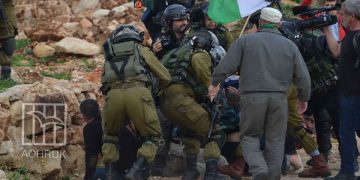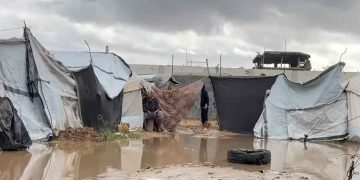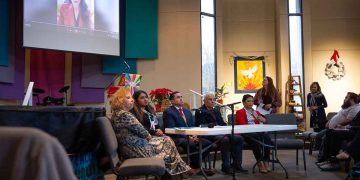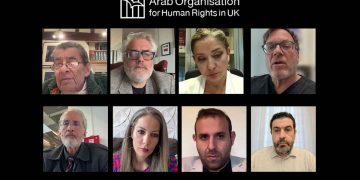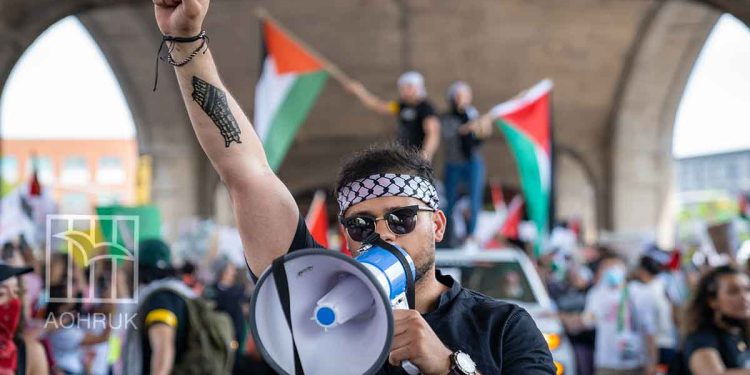Arab Organisation for Human Rights in the UK (AOHR UK) stated that the Jordanian authorities have grown increasingly intolerant of demonstrations and events condemning genocide. In response, security agencies were reportedly instructed to fabricate false charges against protestors. These allegations were later presented in local media as “confessions”, claiming that the accused posed a threat to Jordan’s national security.
Since these confessions were published, the weekly protests that had become a regular form of expression have ceased. The smear campaign broadcasted by local media has created a deep societal rift and instilled fear among activists. Many now fear that anyone who publicly expresses solidarity or protests against the genocide could face fabricated charges or lose their job.
The protests in Jordan against crimes committed by the Israeli occupation carry significant weight, given Jordan’s direct proximity to Palestine. These demonstrations remain the only available way for expressing popular anger, an expression that unsettles the occupation and its allies, exerting pressure to halt the ongoing atrocities.
Jordan has come under pressure from the occupation, its allies, and normalising states to put an end to these protests. Jordan stands as an exception among neighbouring countries, and one of the few Arab nations where popular protests and solidarity events against the genocide have continued.
The fabricated security narrative by Jordan’s security apparatus, aimed at suppressing the pro-Gaza movement, has extended beyond media defamation. It has directly influenced the judicial process, with the State Security Court, an exceptional body lacking full independence, issuing harsh prison sentences against several detainees. These rulings echoed the pre-established security narrative promoted in the media, reflecting a stark politicisation of the judiciary and its use as a tool to silence dissent and intimidate society. These sentences came after official bodies had pre-emptively declared the accused guilty, in blatant violation of the principles of fair trial and judicial independence.
The broadcast of edited detainee “confessions” on news programmes and official platforms served as a form of premature condemnation. These broadcasts included information neither raised during investigations nor featured in the official indictments. This approach aimed to tarnish the detainees’ reputations before any judicial ruling. Such practices, which previously constituted a clear violation of the presumption of innocence and investigative confidentiality, were later given legal cover by the State Security Court’s rulings, thus reinforcing the belief that the judiciary has been used to serve political ends, in clear disregards for justice.
These violations not only affect the detainees, but also affect their families. The state-led media campaign has caused significant social and psychological harm to the families, subjecting them to ongoing pressure and dangerous societal stigma. These repercussions may have lasting effects on their professional lives, legal standing, and place within society; reflecting a systematic approach to collective punishment that lacks any legal or moral foundation.
Despite the Jordanian government’s repeated claims of support for the Palestinian people, its actions on the ground tell a different story. Solidarity with Gaza is now treated as a crime, public spaces are heavily monitored and policed, and grassroots initiatives aimed at supporting Gaza’s resilience under siege and bombardment have been dismantled, revealing a stark contradiction between the state’s declared political stance and its actual practices.
These policies go far beyond restricting freedom of expression, by punishing victims rather than supporting them, which creates a suffocating environment where rights are trampled under the guise of security and judicial procedures, undermining the foundations of the rule of law in favour of narrow political agendas.
AOHR UK holds the Jordanian government, particularly the Prime Minister, the Minister of Interior, and the country’s security and judicial agencies, fully responsible for these violations and the psychological, social, and legal harm inflicted on the detainees and their families.
AOHR UK calls on relevant UN bodies concerned with freedom of expression and judicial independence, most notably the Special Rapporteur on the Promotion and Protection of the Right to Freedom of Opinion and Expression, and the Special Rapporteur on the Independence of Judges and Lawyers, to closely monitor cases related to solidarity with the Palestinian cause. These cases exemplify a repressive trend that has intensified in Jordan since the onset of the assault on Gaza, encompassing restrictions on public freedoms, targeting of demonstrators, smearing detainees, and the utilisation of the judiciary and media to criminalise popular solidarity.


